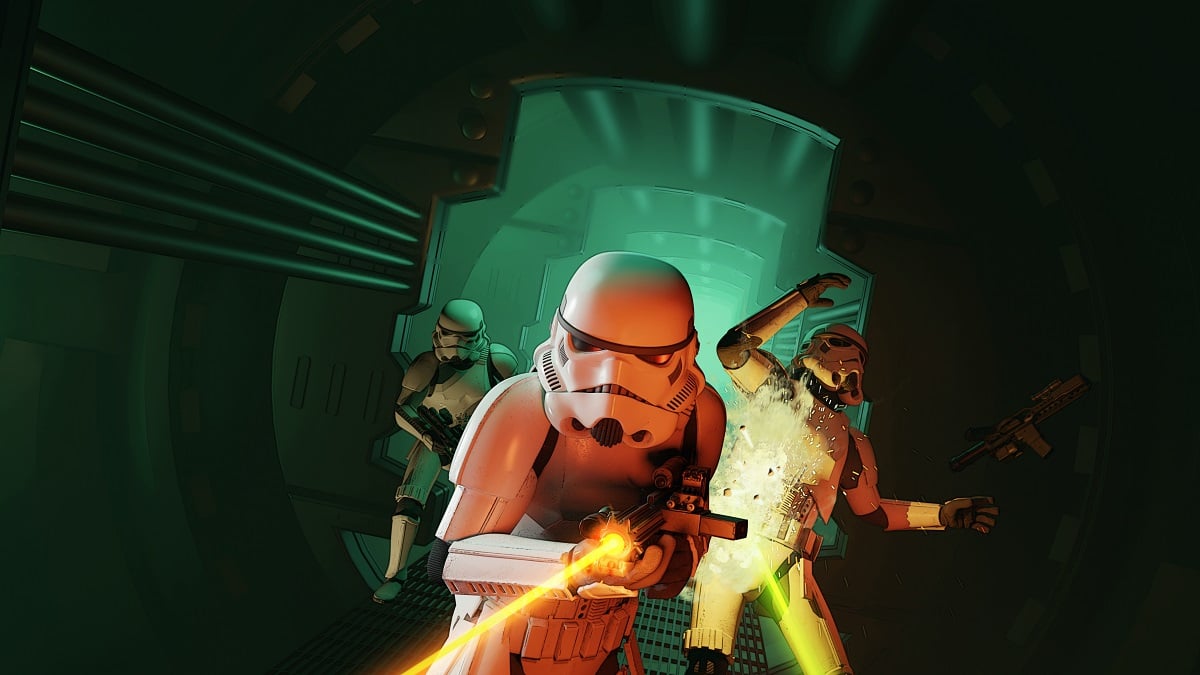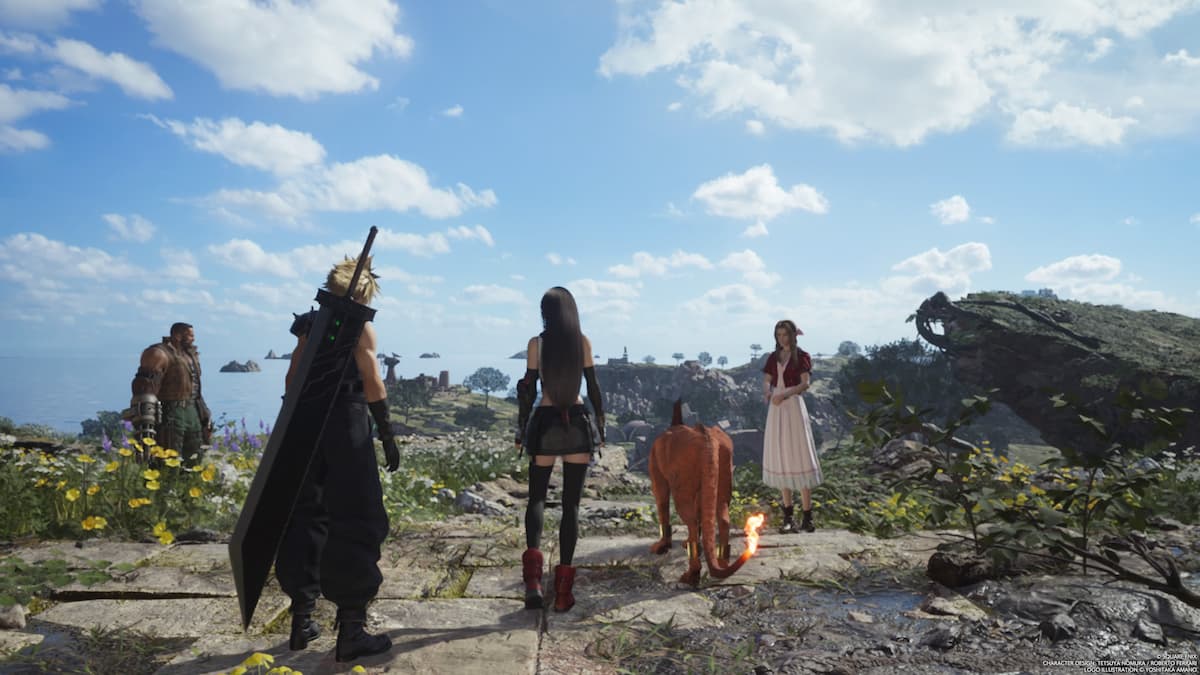Returnal feels like a game that’s slipped under many people’s radars. Perhaps you’ve seen it only through State of Play appearances and promotions on social media, or perhaps you’ve been keeping up with it for a while now either because it caught your eye or you’ve been waiting for Housemarque’s next project. If you’re in the latter camp and have been looking forward to picking it up, your eye for promising games is commendable. Returnal is one of the best titles released in 2021 so far and is a superb showcase of the PlayStation 5’s potential.
Housemarque’s new game follows what first appears to be a relatively simple premise on the surface level. You play as Selene, a practical, steely astronaut who crash lands on the planet Atropos with no clear way out of your plight. Add in hostile flora and fauna and remnants of alien civilizations to decode and you’ve got yourself a recipe for a strong, familiar experience.
At some point after you get your bearings in Returnal, you will die. Once you come back, chances are high it won’t be long before you die again. The game’s roguelike structure kicks players back to where your story began with most but not all of your collected resources discarded. The first death is the biggest confidence-buster of them all, so it’s best to get it out of the way quickly and get comfortable with the idea of dying after that.

This would probably be the best time to mention that I don’t like roguelikes much, so Returnal had that going against it from the start. Many roguelikes come across as cheap and unfair in their attempts to sneak a hit on a player and render progress futile, but Returnal employs no such tactics. Throughout 26 deaths in my first full playthrough of the game – a respectable number in my opinion, though it often felt like that number would be much higher – Returnal consistently felt mechanically tight with every death a deserved one and something to learn from.
Somewhere between all those deaths, you’ll have to get a handle on Returnal’s combat system. “Roguelike” may be one part of Returnal’s formula, but it’s the bullet-hell gunplay style the game utilizes that fuels the action. The first flurry of energy beams, homing orbs, and pulsing lasers that gets launched at you will leave you wide-eyed and wondering how you ended up back at the start of the game, but over time, your panicked dashes become practiced dances. Returning fire as projectiles whiz above your head and health bars tick down is one of the most intense, unblinking feelings Returnal offers and gets a refresh with every new biome.
Behind that combat is what feels like an entirely different game itself, a game of “This or that?” employed throughout Returnal. Weighing the pros and cons of every weapon you come across to use in your one-gun arsenal as well as the risks of contracting malfunctions and other penalties presents players with endless on-the-fly decisions to make. You’re forced into different playstyles based on what you come across, but when everything clicks together and you get a cycle with a loadout that fits your preferences, it’s a powerful feeling that makes you even more hyper-focused to ensure you keep it as long as possible.
Though Returnal’s story has a stereotypical setup, it gets much more convoluted once you crack its surface. Much of what you’ll learn about Selene comes from dying and unraveling her memories to piece together her past. Part of that happens through finding some familiar-sounding audio logs across Atropos, a lore-based decision also handled beautifully by Housemarque. Walls of text and out-of-the-way secrets are two quick ways to fracture Returnal’s bullet-hell shell, so Housemarque smartly restricted the lore-building elements in active combat areas largely to audio logs only. They’re all relatively easy to come by to give players something to find on their way, but you’re never asked to stray too far off your path to find them.

The narrative loses some of its oomph as the game goes on, or rather it trades climax for comprehension. It’s hard to pinpoint exactly where this happens, but there’s a shift in the second half of the game that reflects a sense of urgency and consequences of Selene’s discoveries. The die, live, die again nature of the game is partially to blame for not supporting the weight of the story enough. Players can get stuck in one particular biome so much while just focusing on survival that by the time you break free to the next level, it’s like you’re coming back to a book you put on pause and have a hard time recalling the details leading up to that point.
While most all of these traits that define Returnal would come together to make a meticulous and intense shooter and a puzzling thriller on their own, it’s the features employed by Housemarque using the DualSense controller that elevate Returnal above other PlayStation 5 games. The haptic feedback felt on everything from the biggest hits to raindrops falling on your suit means that there’s hardly ever something happening in-game that the controller doesn’t make you aware of.
Even better than those frequent vibrations is the use of the controller’s adaptive triggers. Tension when using bows or performing other weighty, strenuous actions have been the most common situations calling for adaptive triggers in other games, but Returnal’s use of an alt-fire mode on the left trigger feels like the first real showcase of that feature’s potential. It sounded iffy at first to have such an important weapon-based ability locked behind a relatively new feature that could easily be used on accident by applying too much pressure, but Returnal strikes a balance with just the right amount of tension on the trigger to keep that from happening. Unloading on an enemy and hearing your alt-fire ability come off cooldown gives the opportunity to slam the trigger down to create a “this is it!” moment that couldn’t be recreated conventionally.
Returnal may not beat out other more anticipated titles for Game of the Year honors at the end of the year, but it won’t by any means be forgotten as the potential of next-gen hardware is explored. It’s a shame the game isn’t available on the PlayStation 4 or even other platforms so that more players could experience it, but if that compromise means we get more games like Returnal, that’s a convincing argument. Other games may employ similar mechanics in the future, but Returnal should always be remembered as one of the ones that did it first, and, as of now, did it best.
Rating: 4.5 out of 5
Returnal releases for the PlayStation 5 on April 30th. A review code was provided by the publisher.


